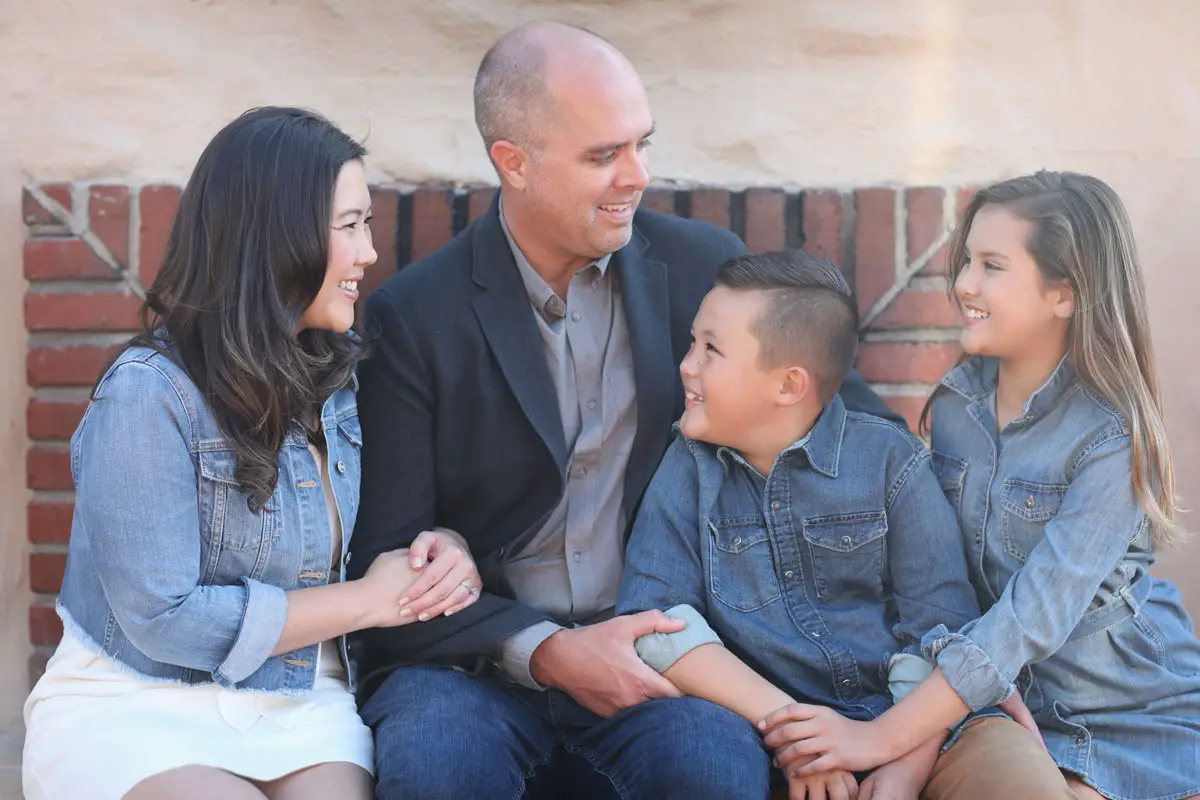SAN MARCOS — As the June primary approaches, The Coast News is introducing the candidates for the 76th State Assembly District and asking them to share their thoughts on key issues including taxes, homelessness, crime and the environment.
One of the three hopefuls in this year’s race is Republican candidate June Cutter, a business attorney and co-owner of political fundraising and marketing company Highland-Illuminate.
Cutter is one of two challengers, alongside Olivenhain Water District director Kristie Bruce-Lane, facing Democrat incumbent Assemblyman Brian Maienschein in the primary next month. The top two candidates will advance to the November general election.
This is Cutter’s second time throwing her hat in the ring for state assembly, after earning 44.2% of the vote against Maienschein’s 55.8% in 2020 to represent what was then the 77th district. Since then, new district lines have shifted nearly two-thirds of what was previously the 77th, including the inland communities of San Marcos, Escondido, and Rancho Santa Fe, into the 76th, increasing its Republican voting power.
“I think it changes the district significantly,” Cutter said. “Sixty-five percent of the district is new to the incumbent, and it’s definitely a completely new geographic area. Demographically speaking it’s changed a lot too … it’s going from blue to purple. The prior district also had a higher minority population.”
Cutter said she was encouraged by the California Women’s Leadership Association to run in 2020 while working with the organization, saying that they “wanted to find a good female candidate, preferably a mom, to run against Brian Maienschein, and it seemed like I was the woman for the job.”
While this race differs from 2020 due to not only new district lines, but the addition of another Republican candidate and it being a midterm year, Cutter believes this still rings true.
Apart from her campaign, Cutter is already extremely busy balancing her career as an attorney, political fundraiser, owner of a home organization company and mother to two school-age kids. The decision to run again at the request of the Republican Caucus was difficult, but something she ultimately felt called to do.
“It is a sacrifice both professionally and personally. It’s not a decision I took lightly at all, but looking at all of the data and the redistricting and the needs of our community, putting it all together, I just couldn’t say no,” she said.
Cutter has identified education, and more specifically school choice, as one of her top priorities in the campaign, along with the need for lowered taxes, better climate change solutions and increased border security.
As an assemblymember, Cutter said she would advocate for school choice to prevent students from being limited in their opportunities, especially since so many California schools are underperforming. Being a parent of school-age children during the COVID-19 pandemic also exposed the cracks in the system that need to be addressed.
“I think competition in the educational marketplace will make all schools perform better, both public and private. I don’t believe kids should be limited to the ZIP code they live in, and I don’t believe a one-size-fits all approach is good,” she said.

She said what sets her apart from Maienschein and Bruce-Lane is her ability to connect with people of different opinions, her unique understanding of the law and her lived experience as a working-class parent.
“I am in the trenches with the parents who are raising their kids in this community, and as a business owner myself, I understand the challenges of small businesses,” Cutter said. “What sets me apart from other candidates is my ability to empathize with community members, and have an open ear and listening mind, and knowing there is someone willing to listen to them and see where they’re coming from even if they have a difference of opinion.”
Environment
Cutter identifies climate change as one of her top priorities in her campaign for the Assembly, noting that wildfires in the state are out of control, and current environmental regulations out of Sacramento are too restrictive and aren’t getting enough done.
Along with destroying lives and property, these fires also set the state back in their carbon reduction goals, she argued.
“Wildfires are a major climate issue that impacts our entire state, including San Diego County. Wildfires endanger human lives, valuable property and entire ecosystems; they also wreak havoc on any progress we make in the fight against climate change,” she said.
In her eyes, Gov. Gavin Newsom’s proposed wildfire prevention strategies from 2019 have made little progress, and more immediate action is needed to reduce fuels that contribute to devastating fires.
“This includes prescribed and managed burns, which produce only a small fraction of the smoke emitted by catastrophic wildfires. Vegetation management is necessary to prevent the human devastation and catastrophic carbon emissions caused by wildfires throughout our state,” Cutter said.
Cutter dives further into her environmental stances on her website, explaining that Democrats’ dream for complete carbon neutrality and moving away from the use of oil is not realistic. While innovation in the energy industry is important, she believes California leaders should focus on using oil that is produced ethically and locally.
To achieve her environmental goals, Cutter shared her commitment to work with environmentalists, industry leaders and scientists to increase access to a diverse range of reliable energy sources.
Affordability, taxes and housing
Cutter identified several different factors that have made the San Diego region, and California as a whole, unaffordable for working families, with unreasonably high taxes being a principal culprit.
“We are feeling the pain of an affordability crisis here in California and inflation at a 40-year high. That is something on the top of mind for most Californians. Affordability is something we need to address because it’s the cost of everything,” Cutter said.
Considering the current $92 billion budget surplus, Cutter said there is opportunity for relief, particularly for middle class individuals who are overtaxed. Currently, individual California filers earning between $61,215 to $312,686 face a state income tax rate of 8%.
If elected, Cutter has committed to opposing all tax increases and proposing a tax cut for the middle class that would exempt the first $50,000 in income earned by an individual and the first $100,000 earned by a jointly-filing couple from state income tax.
“Especially in this time of people struggling with affordability and inflation, we need to be talking about some tax relief,” she said. “Currently in California, the tax rate of somebody earning [around] $50,000 is the same as someone earning $250,000, and I feel like those tax rates, especially for middle class and working class families, are too high.”
Cutter also said she would also advocate for removing state income tax requirements on military pensions, a policy that she believes is driving veterans out of the state. While her husband is a Navy veteran, she clarified that he is not on a military pension himself.
Homelessness and public safety
So far, state leaders’ efforts to implement homelessness initiatives have not made a dent in solving the issue, according to Cutter.
Her own proposed policies around homelessness focus on providing resources that address the root causes of the issue, including providing shelter resources for those with mental illness and substance abuse. However, she said state funds allocated for these services must be audited to ensure that money is not being wasted or misused.
“We need to address the root cause of homelessness for each individual and for the increase of homelessness across our state as a whole. We have spent billions of dollars on the epidemic of homelessness in California, but the problem has only gotten worse,” Cutter said.
“We must create a legal right to shelter with mental health, substance abuse, housing navigation and other support services for homeless individuals, coupled with a legal obligation to vacate public spaces if they refuse such shelter.”
She declared strong opposition to policies which she said increase homelessness and public safety risks, such as Proposition 47, which reclassified nonviolent drug offenses and petty theft from a felony to a misdemeanor, and Proposition 57, which implemented a nonviolent parole consideration process for those who have served the full term of their primary offense.
“California must eliminate ‘soft on crime’ policies that allow individuals to possess narcotics and commit thefts under $950 without repercussion. California must also reduce the early release of unrehabilitated criminals who will inevitably occupy our streets. This is not just an issue of homelessness but also public safety,” she said.
Cutter’s proposed public safety policies also focus on more resources for law enforcement as well as increased security at the U.S.-Mexico border, noting that she herself is the daughter of immigrants. She committed to opposing sanctuary policies and advocating for more infrastructure at the border to ensure increased compliance with the legal immigration process.
Conversations about criminal justice reform, she said, should come after state leaders ensure that children in underserved communities have their needs met.
“Defunding the police or reducing the resources we provide to our law enforcement officers will not fix the purported problems within our criminal justice system. Rather, I believe that any discussion regarding the equities of the criminal justice system must start outside the system itself,” she said. “We need to talk about the root causes of poverty and the value of exceptional education before we can talk about criminal justice.”
For more information about the June primary, check out The Coast News voter guide. Also, check out the Registrar of Voters’ interactive maps for the newly-drawn voting districts in the California Legislature and U.S. Congress.



